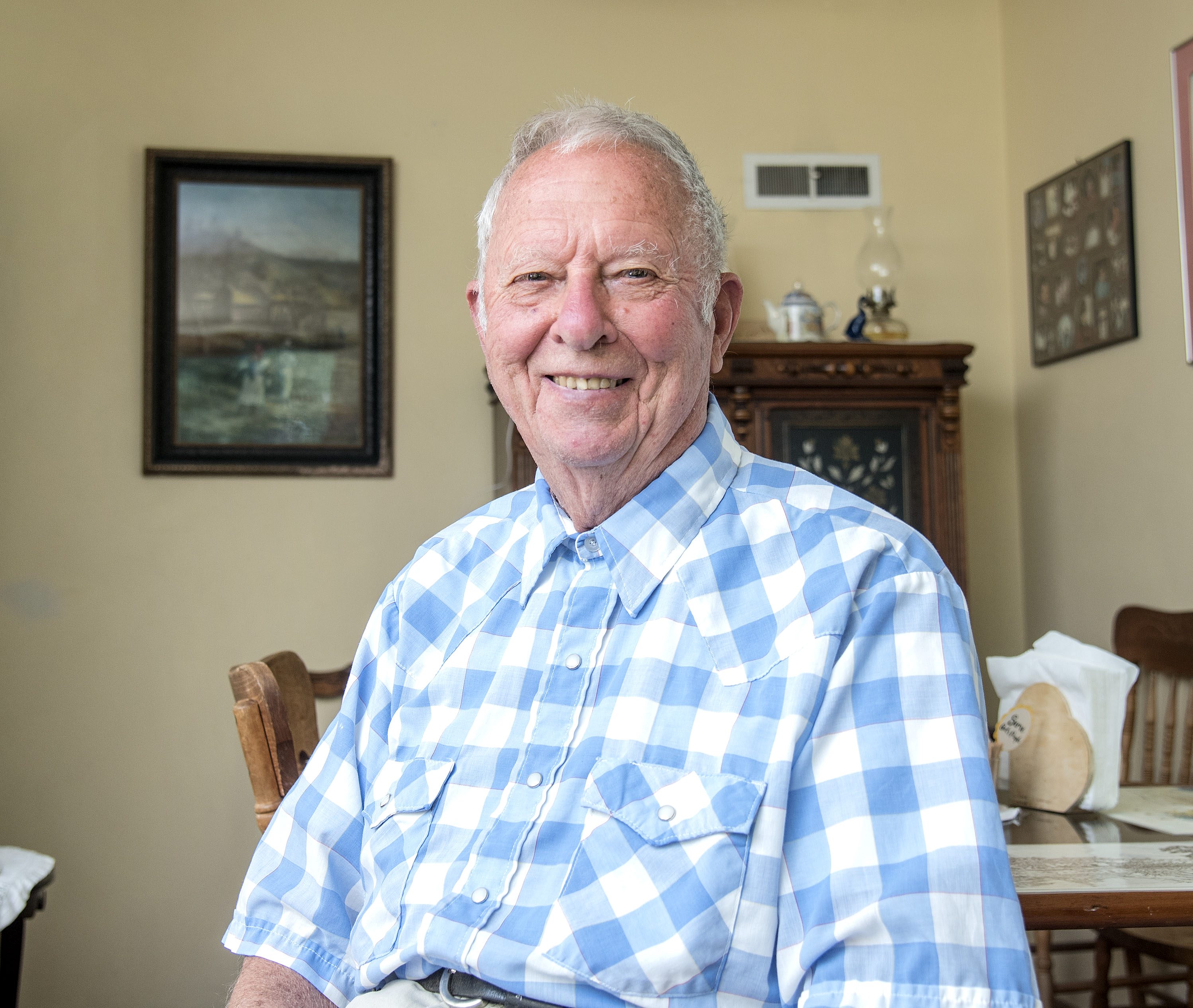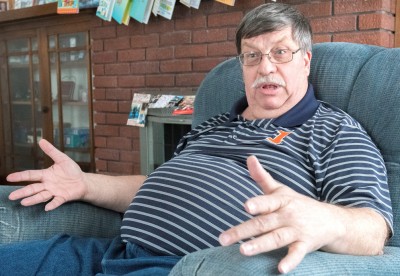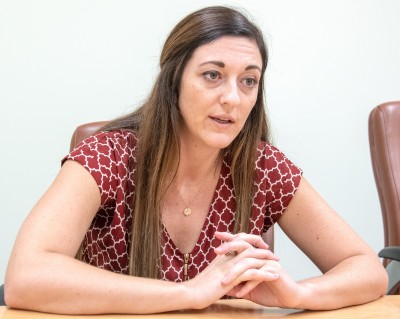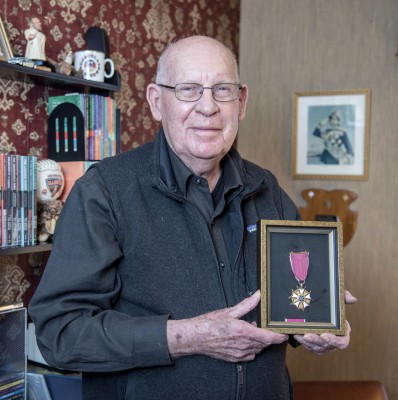Don Saupe
By Paul Wood

Photo By Rick Danzl/The News-Gazette
URBANA — Apparently, silence is golden in the Army.
Don Saupe was on a troop ship in the Pacific when the end of World War II was still a question mark.
“All we knew was that we were heading west,” he recalled.
Now 92, he’d thought he might have a career as a florist; the family had a greenhouse in Geneseo, though there were tough times because his father died young, and the business was sold.
He is a professor emeritus of horticulture.
Saupe graduated from high school in 1943 and was drafted soon after.
After training in Georgia and Kansas, he was ready for the war.
By 1945, the war in Europe was winding down, and the military was putting its full engine of power into the Pacific Theater.
Saupe’s unit was on the USS Tazewell, short of basic information and any news reports about how World War II was going.
Despite all his training, Saupe didn’t feel fully prepared for hitting the beaches in Japan.
“We were green, no training in this sort of invasion,” he said. “There were men who fought their way all across the Pacific toward Tokyo, and we figured we might be fighting alongside them.”
At least Saupe was an expert marksman, having hunted rabbits during the Depression.
The Tazewell was approaching the Marshall Islands, more than 2,000 miles from Japan, when most of the world learned about the two atomic bombs dropped on Japan. The war would end very soon.
“You don’t know anything,” he said of the news slowly reaching the troops.
Saupe is thoughtful about the bombs. They killed a lot of people, he said, but he’s not sure how many more people would have died in an invasion.
So the Tazewell was sent to the Philippines for an enormous task: returning Japanese prisoners to Japan, and even more Americans to their homes and freedom.
After a stop at Manila, Saupe was based near San Fernando, where a stockade held the Japanese prisoners as they were processed for return.
“We sent hundreds of American soldiers home, too,” said Saupe, who handled company clerk duties.
He was amazed by the devastation.
There was destruction everywhere: “bomb craters, burned out buildings,” he said.
The U.S. had held the Philippine islands, then the Japanese brutally took them — his base was on the route of the infamous Bataan Death March three years earlier — and then the U.S. took them back, with both sides ruining the landscape.
(Since then, the archipelago has become an independent nation.)
After Saupe had been there about three months, all the non-commissioned officers were directed to load up their duffel bags and prepare to board a vessel for Korea.
He was ready to go when he found out he was one of 15 to stay in the Philippines.
Ever the horticulturist, what he noticed most about his first time in the tropics was the palm trees. He also saw a lot of water buffaloes used by farmers.
Upon his return, Saupe spent a year at Monmouth College, then transferred to the University of Illinois because it had a horticulture program. He had a green thumb, earning a Ph.D. and becoming a longtime professor.
Saupe has three sons who grew up mostly in a large Homer house surrounded by gardens. He and wife Mary Anderson now live in Urbana.
Do you know a veteran who could share a story about military service? Contact Paul Wood at pwood@news-gazette.com.
Read more stories from local veterans:
 Steven Morenz
CHAMPAIGN — Steven Morenz, a top-secret coder during the Vietnam War, just came back from a Land of Lincoln Honor Flight …
Steven Morenz
CHAMPAIGN — Steven Morenz, a top-secret coder during the Vietnam War, just came back from a Land of Lincoln Honor Flight …
 Jeni Hunniecutt
URBANA — The National Guard took Jeni Hunniecutt from being the first college student in her family to six years of serv …
Jeni Hunniecutt
URBANA — The National Guard took Jeni Hunniecutt from being the first college student in her family to six years of serv …
 Richard Helfrich
CHAMPAIGN — Lt. Col. Richard Helfrich served as an Army surgeon for 12 years, saved lives and got shot at. Upon his retu …
Richard Helfrich
CHAMPAIGN — Lt. Col. Richard Helfrich served as an Army surgeon for 12 years, saved lives and got shot at. Upon his retu …